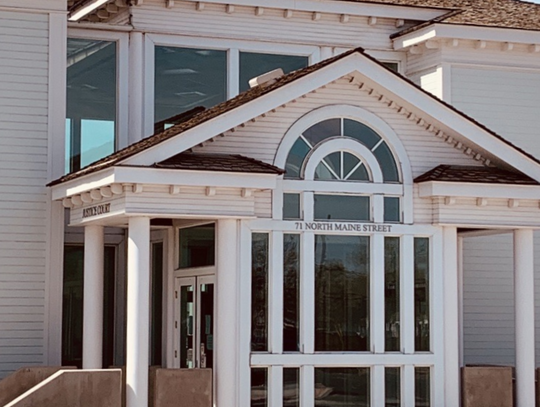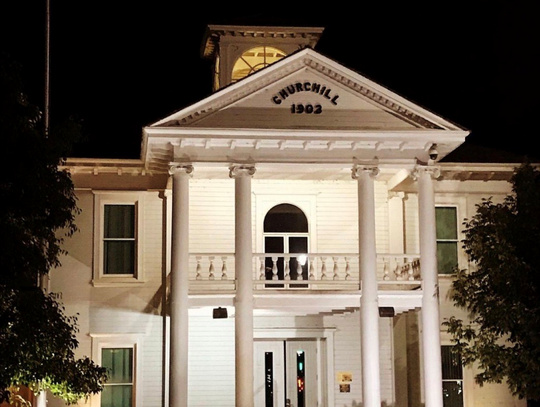Thanksgiving Dinner is a time for family, friends, and holiday traditions. It is also when family members may want to join in the food preparations. The sheer scope of the holiday feast can strain the chef and kitchen alike. In the final hours, there will be all the helpful assistant cooks your family can produce, and they all need to be kept safe. Start with a few ground rules for a fire-safe kitchen. Declare the kitchen off-limits to young children and any adults who are not actively participating in food preparation. Fewer people mean fewer chances for spills, burns, and fires.
It has become a Thanksgiving tradition with many families to deep-fry the turkey. Turkey fryers can potentially cause fires and severe injury. If you plan to deep-fry your holiday bird, be sure you know how to safely use the fryer. Take these precautions to protect yourself, your guests, and your home.
- Keep fryers off decks, out of garages and safe distance away from trees and other structures.
- Make sure the turkey is thawed and dry before cooking. Ice or water that mixes into the hot oil can cause flare-ups and spill flammable oils.
- Never operate a fryer outdoors in the rain or snow.
- Place the fryer on a level surface. Avoid moving it once it is hot.
- Leave two feet between the tank and the burner when using a propane-powered fryer.
- Follow the manufacturer’s instructions to avoid overfilling. Oil can ignite when it contacts the burner.
- To determine how much oil you need, put the turkey in the basket and place it in the pot. Add water until it reaches 1 or 2 inches above the turkey. Lift the turkey out and use a ruler to measure the distance from the water to the top of the fryer. This will be the amount of oil you should use. Pour out the water. Be sure to dry the fryer completely before filling the pot with oil. Make sure turkey is completely thawed. Pat the turkey dry with paper towels before placing it in the fryer to keep the hot oil from spattering and popping.
- Choose a smaller turkey for frying. A turkey that’s eight to ten pounds is best; pass on turkeys over 12 pounds.
- Never leave fryers unattended.
- Purchase a fryer with temperature controls and watch the oil temperature carefully. Cooking oil that is heated beyond its smoke point can catch fire. If you notice the oil is smoking, turn the fryer off.
- Turn off the burner before lowering the turkey into the oil. Once the turkey is submerged, turn the burner back on.
- Wear goggles to shield your eyes, use oven mitts to protect your hands and arms, and keep an “ABC” fire extinguisher nearby. Do not use water or a garden hose on a fire related to turkey fryers. Before you cook, check your fire extinguisher pressure gauge. If it is less than fully charged, have it recharged or purchase a new one.
- Skip stuffing the bird when you fry a turkey. Avoid water-based marinades.
- Keep children and pets away from the fryer at all times.
- Once finished, carefully remove the pot from the burner; place it on a level surface and cover to let the oil cool overnight before disposing of it.
- If you are purchasing a fryer, consider an oil-less fryer that uses infrared heat rather than oil to cook the turkey.
Lights/Electrical tips:
When using lights, make sure they are UL-approved.
Check electric cords for cracks and frayed wires. Don’t overload electrical outlets, and never run extension cords under carpets.
Check extension cords to ensure they are not pinched under or behind furniture.
Always unplug decorative lights before you leave home or go to bed.
Candle safety tips:
- Put candles in non-tip candle holders.
- Candles should never be by curtains, Christmas trees, and all combustibles. Never leave candles burning when they are within reach of young children.
- Blow out candles before you leave the room or turn in for the night.
Fall and winter safety tips:
Thanksgiving comes at the start of the heating season. Your home needs to be safe and warm. Have central heating furnaces and chimneys inspected and cleaned once a year and as appropriate or when you suspect a problem. Keep space and portable heaters at least 3 feet away from anything combustible, such as walls and furniture. Use the right fuel for liquid fuel heaters. Ensure they are properly vented and refilled in a well-ventilated area when cool.
Install CO2 detectors to alert you to dangerous carbon monoxide levels. Pellet stoves typically should be four inches from the walls at the sides and one to two inches from the back wall. Most need to stand on a non-combustible surface such as stone. Read the manufacturer’s instructions.
Dispose of ashes from fireplaces and pellet stoves into a metal container. After your metal containers are cool, you can dispose of them at the city transfer station. The metal container for the ashes should never be stored indoors. I have responded to fires where the container was stored on a wooden porch or under it, and the whole porch went up in smoke.
Party safety tips:
For party safety, flame retardant or non-combustible materials should be used for costumes and decorations. Smokers should have deep, non-tip ashtrays.
Be aware of quests that drink and smoke and empty ashtrays often, ensuring ashes are disposed of in metal containers outside; wet the ashes before dumping them. After the party, inspect cushions for smoldering cigarettes and cigars.
With common sense, you can ensure tragedy doesn’t come between you and the festive holiday you have planned. Have a happy and safe Thanksgiving.









Comment
Comments